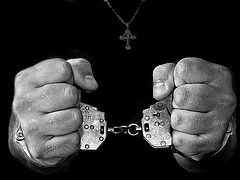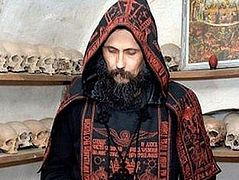
I’ve noted in previous posts that there is a clear connection between impulsivity and addiction. In their article on genetic factors related to impulse control, authors Florence Cormier, Julia Muellner, and Jean-Christophe Corvol note that, “According to the Diagnostic and Statistical Manual of Mental Disorders, the main characteristic of impulse control disorders (ICD) is the inability to resist an impulsion, tendency or temptation to perform an act that harms oneself or others. Many of the diagnostic criteria for ICD are shared with substance use disorder.” Like addiction, impulsivity also has a cycle that is often repetitive and difficult to break once the impulsive behavior becomes ingrained.
The cycle is characterized by a cycle of tension, gratification, and remorse or guilt after the impulsive act. Tension builds because of a desire to commit the act. According to McConaghy’s Behavior Completion Mechanism model, “If the individual acts on a drive to carry out a habit, and the habit matches the neuronal representation in the brain, any further drive to complete the habit is inhibited, fostering a sense of gratification. However, if individuals are prevented from completing the whole behavior pattern from beginning to end, they are left in a state of tension, which leads to a drive or urge to continue with the habitual pattern of behavior.” In other words, just beneath the surface of awareness, our mind generates a desire for a given activity. With the desire gnawing away, there are two possible paths: the dictated behavior is completed and our mind rewards itself with a release of tension or the behavior is resisted in which case the mind continues to produce urges for activity and maintain that state of tension. We are immediately aware of desires abating when gratified and retrospectively aware that this cycle repeats itself, but the inexorable mechanics of the cycle driven by dopamine levels are beyond our grasp, seemingly beyond our control.
The semiconscious processes of acting on impulses and forming habits are just the way our brain works, as natural as our breathing lungs and beating heart. And just as genetics play a role in a heart developing irregular rhythms requiring some kind of external medical intervention, so genetics play a role in impulsivity issues that are undergirded by variations in dopamine concentration at synapses, dopamine metabolism, and dopamine receptors, which is Cormier and colleagues’ very technical way of saying that there are variations among people in how pleasurable and rewarding impulsive activity can be or conversely how difficult it is to stop impulsive behavior. Given dopamine’s role in learning, it is no surprise that studies have demonstrated that impulsive people are less able to learn from previous mistakes or factor the consequences of such actions in light of the expected feeling of gratification. The desire becomes the operative factor in behavior while the negative consequences and post-behavior sense of remorse are relegated to secondary considerations. Afterwards though, the impulsive do not feel less pain and suffering, but often more.
Parallel to the neurological/behavioral pathway of dopamine-driven impulse, tension, and gratification, underlying impulsive behavior, there is also in certain situations a spiritual pathway of the temptation to sin described by the holy fathers who label the stages as provocation, struggle, assent, and act. This spiritual dimension to the struggle is equally realistic in portraying the difficulties involved in fighting impulsive behavior that is engrained, but also adds an ingredient that can make all the difference in the world, the presence of a loving God Who desires to see us whole and free, acting and living even as He did on earth, at peace in the midst of crowds often raging against Him.
In my own book Ancient Christian Wisdom, I considered Latin and Greek literature on the subject and described this pathway in detail comparing it to the cognitive model of substance abuse, but I think it would be nice to hear another voice presenting this same patristic process. The Russian theologian Deacon Andrei Gorbachev writes, “‘A thousand-mile journey begins with one step,’ say the Chinese. So also every passion begins with one thought, which is called prilog, or ‘suggestion.’ This term describes a thought, but also an image, a feeling, a desire, or a state that suddenly arises in the human soul; however that is not to mean all thoughts or states, but only those aimed at separating us from God. It is not possible to completely avoid prilogs, but it is within man’s power to either accept them or reject them. The Ancient Patericon (sayings of the holy fathers) describes the following incident: ‘A brother came to Abba Poemen and said to him, “I have many thoughts, and I am in danger from them.” The elder took him outside into the air and said, “Open your collar and lapel, and do not let the wind in!” “I can’t do this,” answered the brother. “If you cannot do that,” said the elder, “then neither can you prevent the thoughts that come to you. But it is your job to withstand them”’… The next step in the strengthening of the passions in the human soul bears the name ‘conjunction’ and consists in the interchange with the thought. The thought draws the attention of the one being tempted, who is now in danger of being drawn into sin. Therefore, conjunction is not always without blame. If a person feels some pleasure from the interchange, then the will is already inclined towards the sinful thought and is leading the person to the next stage. That state is called soslozheniem, or ‘acceptance’ of the thought. At this stage happens the complete acceptance of the illicit thought, which attracts and fills the person’s mind, feelings, and will so that sin begins to act in the human soul and prepare it to actually commit the sin in deed. By lingering in this state a person is taken to the next step, called ‘captivity’—a state that has a qualitative difference from the former states. If up to that point the person could through his own efforts not only withstand the sinful thoughts, but also overcome them (If thou doest not well, sin lieth at the door. And unto thee shall be his desire, and thou shalt rule over him [Genesis 4:7]), now even the very desire to abandon the sinful thought disappears. If this comes up, then the person is no longer capable of getting rid of the illicit desire that has taken him over—unless he have some outside help.” (“How Are the Passions Born?”)
The parallels between the two descriptions are striking! The thoughts can’t be stopped; that’s just how the brain functions. The pleasure felt in the interchange with a thought is parallel to the preliminary release of dopamine, whereas the thought filling a person’s mind, feelings, and will is parallel to the cascade of neurotransmitters driving all one’s attention to the thought. The patristic description, however, focuses on the will that at first is not used forcefully and in the end is not used at all, which is the ultimate tragedy of addiction. Once a passion has taken over, outside help is needed, be it in the form of a community of strugglers, frequent confession to a spiritual father, living the mysteries of the Church, and in most cases all of the above, with the believer always relying primarily on the grace of God.
Although there is much that is similar in the various types of impulsivity that might wreak havoc in an otherwise smooth life, there are also factors that are specific and must be taken into consideration. That is why the fathers always suggest observing carefully the characteristics of the primary passion that is at the heart of one’s struggle. According to Saint John Cassian, “There are eight principal vices that attack humankind. The first is gluttony, which means the voraciousness of the belly; the second is fornication; the third is filargyria, which is avarice or love of money; the fourth is anger; the fifth is sadness; the sixth acedia, which is anxiety or weariness of heart; the seventh is cenodoxia, which is boastfulness or vainglory; and the eighth is pride…Although these eight vices, then, disturb the whole human race, nonetheless they do not assail everyone in the same way. In one person the spirit of fornication is dominant, in another wrath rides roughshod, in a third vainglory tyrannizes, and in still another pride holds sway. And although it is evident that we are all attacked by all of these, yet we each suffer in different ways and manners. Therefore we must so join battle against them that everyone spies out the vice by which he is particularly besieged and struggles chiefly against it, fixing all the care and attention of his mind on fighting it and keeping watch on it, brandishing the sighs of his heart and the many darts of his groans against it at every moment, employing the effort of his vigils and the meditations of his heart against it, pouring out the unceasing tears of his prayers to God, and insistently and continually demanding an end to the assault on him” (Conferences, pp. 183-96).
If we transpose this passage to the setting of impulsivity, we can see that the first step is awareness, awareness of the impulse that troubles us, awareness of the process by which the impulse takes over, and then using one’s reason and one’s emotion to move in another direction, the direction of God. And though the waves come, the house can still stand fast, secured by that blessed peace, that sacred contrition, and that holy union with God, the source of all strength, all life, and all positive change. In the process, we see the depths of our weakness and our need for God in order to move forward humbly under the shadow of His wings. As Saint John Cassian puts it, “It is impossible for a person to deserve to triumph over a passion before he has understood that he is not able to obtain victory in the struggle by his own diligence and his own effort, even though in order to be cleansed he must always be careful and attentive, day and night. When he finds himself freed from it, he should once again and with similar intensity shine light on the hidden places of his heart, locate for himself whatever is still more horrible that he notices remaining, and move against it in particular with all the arms of the Spirit. Thus, when he has consistently overcome more powerful foes, he will have a quick and easy victory over the ones that remain, because the mind too becomes stronger through a succession of triumphs, and subsequent struggles with weaker foes make for readier successes in the battle” (Conferences, pp. 183-96).
What Saint John Cassian describes is “the renewing of the mind” that Saint Paul spoke of, that enables us to “test what is that good, and acceptable, and perfect, will of God” (Romans12:12). And the light that shines on the hidden place of the heart and purifies those regions is none other than the person of Christ who mercifully responds to everyone who calls out His all-holy name with the humble words, ‘Lord Jesus Christ have mercy on me.’ Watchfulness is only complete when awareness of the stirrings of the heart is united with the remembrance of God. As Saint Isaac the Syrian put it, “the passions are uprooted and turned to flight by constant occupation of the mind with God. This is a sword that puts them to death… Whoever always thinks about God drives the demons away from himself and pulls up the seeds of their malice” (Homilies, 8).
For those who recognize the arduous task of rooting out the passions and impulsive behavior, Elder Ephraim offers the following: “Struggle, my child, for God’s road is narrow and thorny; not inherently, but because of our passions. Since we want to eradicate from our heart the passions, which are like thorny roots, so that we may plant useful plants, naturally we shall toil greatly and our hands will bleed and our face will sweat. Sometimes even despair will overcome us, seeing roots and passions everywhere! But with our hope in Christ, the Repairer of our souls, let us diligently work at clearing the earth of our heart. Patience, mourning, humility, obedience, cutting off one’s will—all these virtues help cultivate it. We must apply all our strength, and then God, seeing our labor, comes and blesses it, and thus we make progress. Take courage, for the toil is temporary and ephemeral, whereas the reward is great in heaven. Struggle and be vigilant with your thoughts. Keep a firm hold on hope, for this shows that your house is founded on the rock—and the rock is our Christ. Do not feed your passions by yielding to them, so that you do not suffer pain and affliction later! Labor now, as much as you can, because otherwise, if the passions are not tended to, in time they become second nature, and then try and deal with them! Whereas now, if you fight against them lawfully, as we advise you, you will be freed and will have happiness by the grace of God. The thing that should preoccupy us above all is how to cleanse our heart from the passions and how to abate some passion or vice! The visitations of grace that God sends us from time to time for consolation do not play an important role, because they come and go. Ah, those passions! They are like roots with thorns. How much toil, how much pain, what tears, what prayers are necessary for a person to find slight relief—it is a real martyrdom! I pray to the merciful God that He will show you the path of salvation and guide you as a hart to the springs of the living water of refreshment. Man is full of passions, shortcomings, etc., and in order to be freed of them, he must engage in a bloody battle. Once he wins, with God’s help, he will receive here in this life the promise of the future marriage with the Lamb, Who was ruthlessly slaughtered by cruel hands accursed by God.” (“Counsels from the Holy Mountain” by Elder Ephraim, (Florence, Arizona: St. Anthony’s Greek Orthodox Monastery, 1999), pp. 163 – 164.)
The fathers are well aware of the great struggle involved in impulsivity and the passions that have taken over a person’s life. It is a real martyrdom causing much pain, tears, and toil. But that very martyrdom can be the path that leads to the Kingdom of heaven. Above all, the impulsive and the passionate must never give up hope. Instead being divinely patient with themselves, being humbly obedient where they can, heroically cutting of their will where they can, sincerely mourning for their slips as they can, examining themselves as carefully as they can, and faithfully calling on the name of Christ as often as they can, a ray of light will shine in their hearts, gradually, but surely leading them to the place of freedom they desire in the Father’s house, where there are many mansions and a place prepared for those who labor and are heavy laden, so in need of rest in the arms of God (John 14:2; Matthew 11:28).



